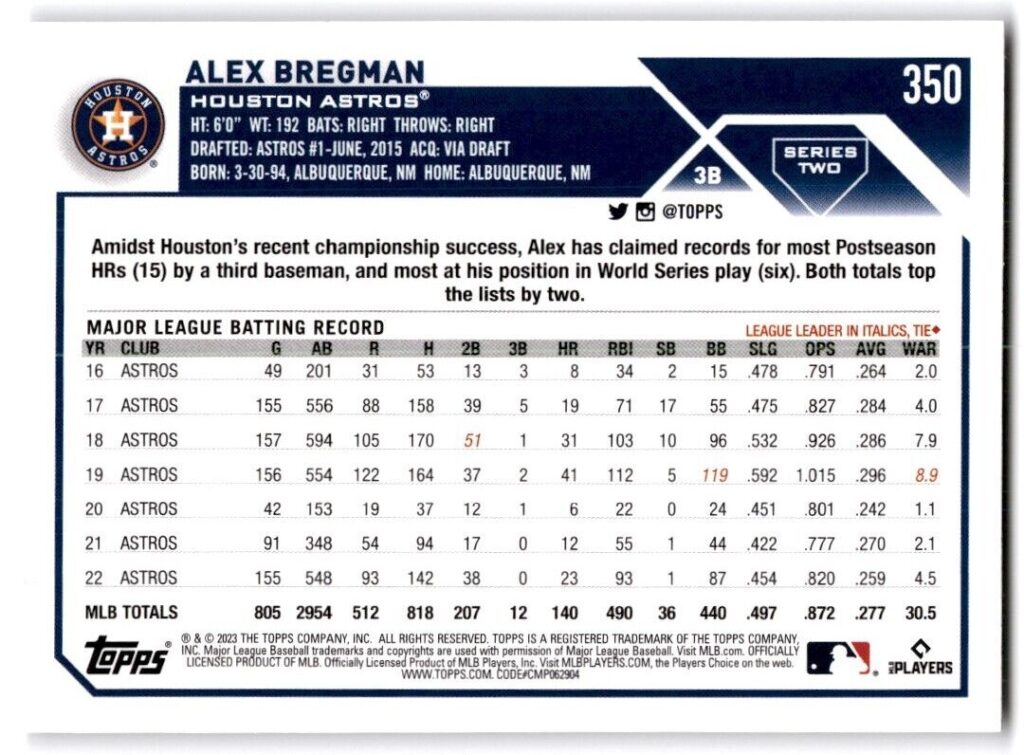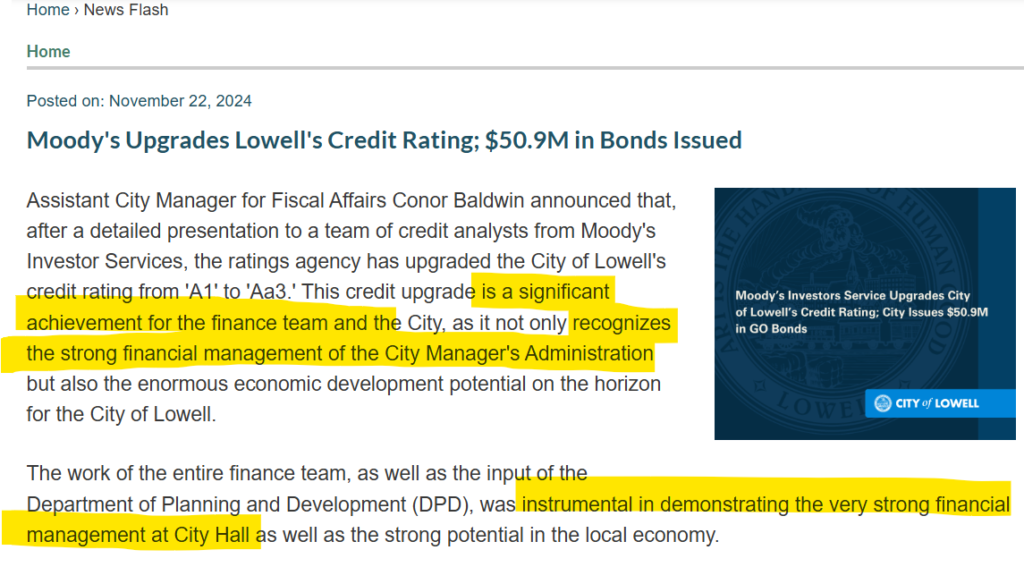
Charge your phone and pack a lunch. This is going to be a long one.
Right Person? Yes. Right Time? Depends Who You Ask and When
In April of 2022, Tom Golden entered into a five year contract to serve as city manager. Last week, with 26 months remaining on that deal, Councilor Mercier filed the following motion:
C. Mercier – Req. Mayor enter into negotiations with the City Manager and City Council, in Executive Session, to discuss extending his contract, pay scale, etc.
Last night, the motion was amended, by Councilor Mercier, to dispense with executive session and simply extend the current contract by three years.
Councilor Mercier began her comments by asking Manager Golden whether he wanted to stay. After receiving a response in the affirmative, Councilor Mercier noted the Manager’s handling of APRA monies, and that she “agrees with Gerry Nutter” as to why an extension is warranted. Among reasons listed were “The Education City, The UMass LINC development, etc.” Further, she had former (unnamed) city managers call her and they thought this was a great idea. She then noted Lowell’s selection as a Front Runner City as well as the opening of the Beaver Street Bridge and roadway improvements. She concluded that she didn’t want to lose the manager and his team “before we even know it.”
Speaking in opposition, Councilor Robinson first agreed with the positives cited by Councilor Mercier. He thinks we have the right person in the position and favors stability. As evidence, Councilor Robinson cited the original five year deal – a period longer than the usual offer. However, he questioned the timing of the motion and warned against the signal it sends to other contract employees in the city.
Next, Councilor Gitschier noted the cost and the fact that the maker of the motion didn’t provide the public with a dollar figure. He advised that by the end of the deal, it will pay $320k/year. Councilor Gitschier echoed that his opinion was in no way personal, but entering into this deal, at this point in time, is not fiscally prudent.
Councilor Nuon listed many successes attributable to the manager, including housing development, business development, and infrastructure. However, he could not support the motion knowing that there are over two years left on the current deal. However, if it were 18 months, he would support it.
Finally, Councilor Jenness emphasized how responsive the manager is and gave thanks to both the manager and his team. Again, his issue was one of timing. Councilor Jenness cited unease with both federal and state funding and it’s effect on local finance. He appreciated the desire to take this question off the table but is “too big a bit of the apple” – right now.
The motion to extend the contract by three years passed by a vote of 7-4, with Councilors Mercier, Scott, Yem, Belanger, Chau, Descoteaux, and Mayor Rourke voting in favor and Councilors Gitschier, Jenness, Nuon, and Robinson voting against.
Excepting Councilor Mercier, not one person person voting in favor offered any comment. As I watched the votes roll in, I couldn’t help but think of a time when the very notion of a contract for a city manager was controversial for some casting “yes” votes. In 2013, When Bernie Lynch was in office, then-candidates Rourke and Belanger told The Sun about some starkly different ideas:
“Challengers Corey Belanger and Dan Rourke said they don’t support contracts for the city manager’s position.
Belanger said he opposes contracts because he said they can lead to complacency on the part of city managers, though he would be open to Lynch continuing without a contract.
“If you want job security in Lowell, you need to perform,” Belanger said.
Rourke has been complimentary of Lynch, but has said he does not see any benefit to the city when the city manager has a contract. Rourke also said he believes the city could find many qualified candidates who would be willing to work without one.
“The city ran for decades without city managers having a contract,” Rourke said. “As long as the person is doing the job, they have nothing to worry about.”
Further, in 2014, then Councilor Rourke thought that a period of only 7 months was too early to begin a contract negotiation:
“Rourke told The Column he had a feeling Lynch’s current contract was in play. He said it would have been very early to ask a new council to start negotiating a new deal. Lynch’s contract was to expire July 31.”
I see.

What We Talk About When We Talk About Good City Managers
What struck me about last night’s meeting was how little in the way of reasoning the majority provided. Councilor Mercier’s motion was somewhat extraordinary. I favor the idea that extraordinary claims require extraordinary evidence. Unfortunately, supporters of the motion failed to make a case. As noted, six of the seven “yes” votes didn’t even try.
Ironically, prior to the start of last night’s council meeting, the Oversight and Personnel Sub-Committee met to discuss an “Evaluation Tool” for the City Manager, City Auditor and City Clerk. The idea is that we need a more transparent and objective measure of evaluating our city manager. This concept was deemed irrelevant by those wishing to press forward without a formal evaluation process. Though I have some doubts about whether this new “tool” will be useful, at least there is some recognition that the way we evaluate city managers is problematic.
In baseball, there is a statistic called Wins Above Replacement (WAR). WAR estimates how many more wins a player contributes to a team than a generic replacement player. There is no WAR for city managers. We have no way of knowing whether any success or failure attributed to any city manager would not have otherwise occurred with some generic replacement. There’s no back of the baseball card by which the public can measure success. Last night proved that the public doesn’t even get to see a report card.

To be clear, like all of the councilors who spoke last night, I think Manager Golden is doing a good job. The problem is that when I deem manager Golden (or any other manager) “good,” I’m working with very limited set of tools. I think others are too. How do we define a good city manager in the first place?
To solve the riddle, it may be helpful to think about pornography (twist my arm). In 1964, the US Supreme Court was tasked with deciding whether the 1958 French drama Les Amants constituted hard-core pornography. In a concurring opinion that the film was not porn, Justice Potter Stewart famously set forth his test for obscenity:
“I know it when I see it.”

[Les Amants = “The Lovers” for those of us not raised in Pawtucketville]
Should the test that distinguishes a French art film from porn be similar to how we judge a city manager? Can “good” be defined with certitude and objectivity, or do we merely “know it when we see it?”
Consider the five managers of the past 20+ years:
- Tom Golden
- Eileen Donoghue
- Kevin Murphy
- Bernie Lynch
- John Cox
Prior to the start of their terms, there were forces in the city promising us that each and every one would be good. Near or at the end term there were forces assuring us of the exact opposite. Whether any manager is “good” can, in part, depend on the ever-shifting game of what political tribe is holding the cards.
Without clearly defined expectations and standards for measurement, it makes it easier for others to define reality. Think about the the public conversation leading up to last night’s vote. We were lead to believe that action needed to be taken immediately – why? Was the drum beat based on any type of reality or was it a created to serve an agenda? It seems that we can be sold the idea of “good” by those who promise that they “know it when they see it.” When power brokers want to make a move, we are forced to make manager decisions base on “feel,” and “feel” can be manufactured in ways both obvious and subtle.
Take for example the lack of information and reporting on local government. In this void any manager worth their salt will seek to control their performance narrative. More often than not, City Hall tells us what City Hall is doing and how well it’s doing it. Check out this recent North Korean “News Flash” from the administration:

I doubt we’d ever see a City Hall “News Flash” about something negative, no matter how newsworthy. Or, watch the the “2024 Year in Review” video shown at the meeting on February 11th. I happen to enjoy these presentations as I like hearing about good things in Lowell. But make no mistake about what they are and what purpose they serve. It’s no coincidence that an infomercial got shown on 11th and a week later councilors bought more of the product.
The Council, of course, has the main role in this dynamic. Councilors have the ability to set standards, review information with a critical eye, and demand accountability for meeting city goals. However, Councilors can’t be expected to provide much in the way of objectivity. They are often guilty of an “original sin” of manager evaluation when they anoint from a closed pool of candidates without real competition.
Thereafter, councilors can work to convince us of the wisdom of their home-grown choice. They can root for a manager as a champion of their tribe and act as his or her human shield. In the alternative, some can attack in bad faith until the manager resigns or is bloodied and bruised. Worse still, are the dead-weight do-nothings who don’t understand the assignment in the first place. The result is a public that doesn’t have the tools to assess managers because many city councilors are ill-equipped to provide them.
In this environment, how could citizens judge the merit of Councilor Mercier’s motion?
Again, if you read this as any type of critique of Manager Golden, it’s not and you’re missing the point. Like those voting in opposition last night, my issue is one of process and system rather than the person. My gut tell me that Tom Golden is currently the right man for the job. But that’s precisely the problem. When the pool from which managers are drawn is constricted, the narrative controlled, and the council biased – how can I trust my gut?
I look forward to see what happens with the Evaluation Tool discussed in sub-committee – perhaps it has potential to lend some objectivity. Before the public is asked to go along for the ride of another contract, it would be nice to have some measure of what success looks like, rather than being asked to merely “know it when we see it.”
